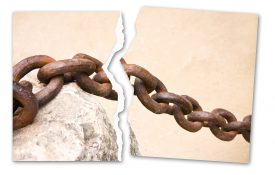-
Where’s the Scientific Research Into How Sexual Orientation Develops in Women?
Slate: When I scroll through the biomedical research into how sexual orientation develops (don't judge my hobbies), I notice three things. The first one's obvious: Compared with, say, erectile dysfunction or male pattern baldness, there's not much research into the biological origins of sexual orientation. The second is a triumph of science. Researchers have figured out that men are more likely to be gay if they have older biological brothers from the same mother, or if they inherit certain genes from their mothers, some of which seem to be the same genes that make their female relatives more fertile. But the third thing I notice is something that isn't there.
-
This new rule could reveal the huge gap between CEO pay and worker pay
The Washington Post: Thousands of public U.S. companies are likely to soon be forced to share a number many would rather keep under wraps: how much more their chief executives make than their typical rank-and-file employees. The Securities and Exchange Commission is expected to finalize on Wednesday a long-delayed rule forcing businesses to share their "pay ratio," a simple bit of arithmetic that would cast an unprecedented spotlight on one of corporate America's thorniest debates.
-
The Citizen Preschooler
The Atlantic: One morning this past April, scores of preschoolers and kindergarteners dragged their grownups into the National Gallery of Art in Washington, D.C. The children had created an exhibit demonstrating their perceptions of the nation’s capital and what it means to belong to the city. In one gallery, there was a replica of the D.C. Metro routes, made from neon-colored plastic pipes. In another were cardboard, foam, and popsicle-stick models of the children’s dream playgrounds. Over the course of the morning, a signboard asking “what does it mean to be a citizen?” bloomed with more and more bright sticky notes containing answers to that question.
-

Psychosis and Violence Aren’t Strongly Linked
Violent individuals are often assumed to suffer from a long history of mental illness that compels them to act destructively, but the link between psychosis and aggressive acts may be weak. Visit Page
-
Hidden Cameras Make Safer Drivers
Love them or hate them, a new study finds that speed cameras really do help stop drivers from speeding—particularly when the camera is hidden. Drivers may not appreciate getting a ticket, but speeding is one of the biggest contributors to traffic fatalities. Statistics from the National Highway Traffic Safety Administration cite speeding as a factor in 29 percent of motor vehicle crash deaths in the United States. Evidence suggests that speeding cameras can substantially reduce traffic collisions, including ones in which drivers are seriously injured or killed. However, research also suggests that speeding cameras can actually increase rear-end collisions in certain circumstances.
-
How to beat smoking, other bad habits with better self-control
CNN: Ready to kick your bad habit once and for all? Even if you're not completely committed yet, there's a technique that may unconsciously help, whether you're intending to quit smoking, binge eating, gambling or another addictive behavior — and even if you don't think you're ready. A review of addiction research, published in Trends in Cognitive Sciences, suggests mindful meditation strengthens self-control in smokers, even among those smokers who haven't set an intention to quit. ...

